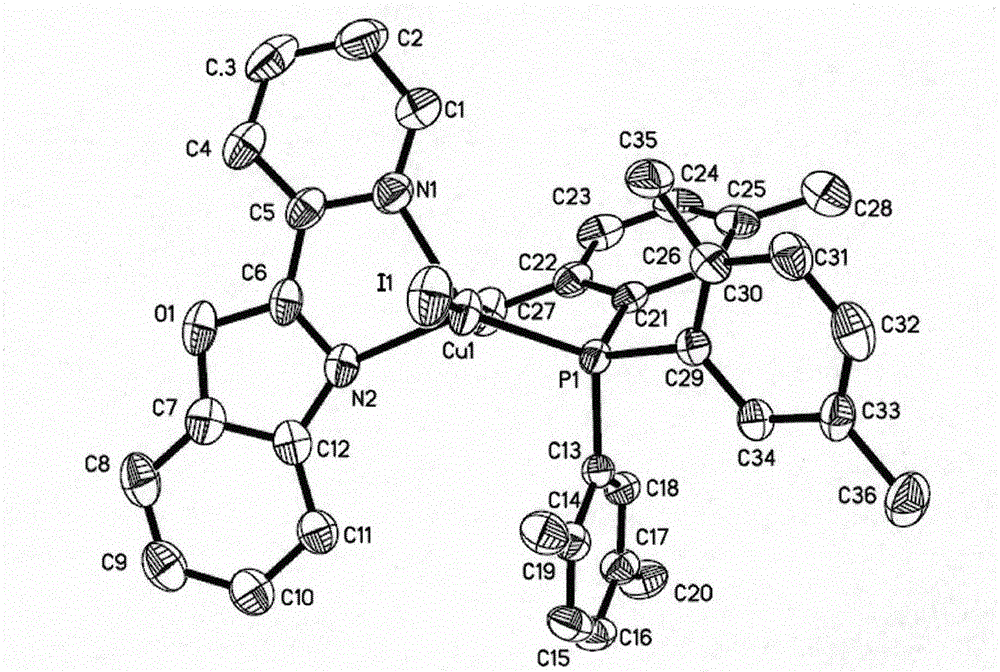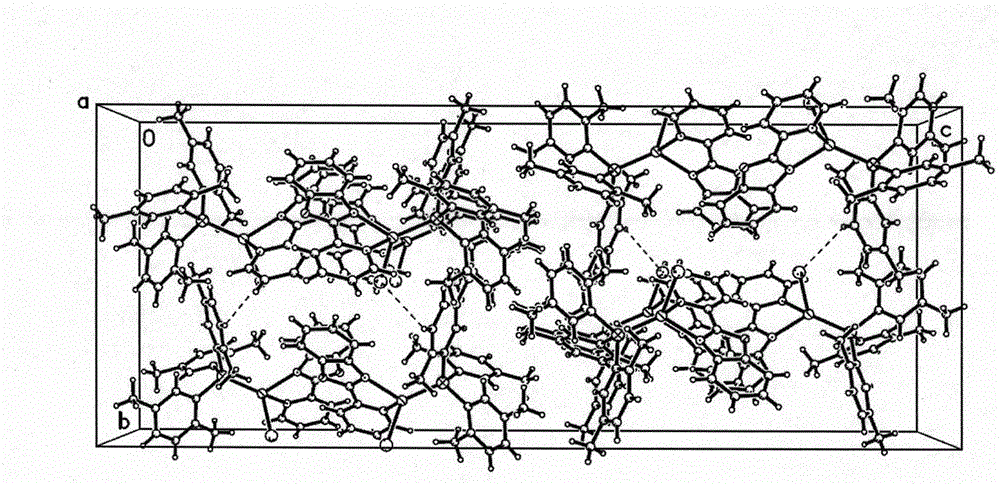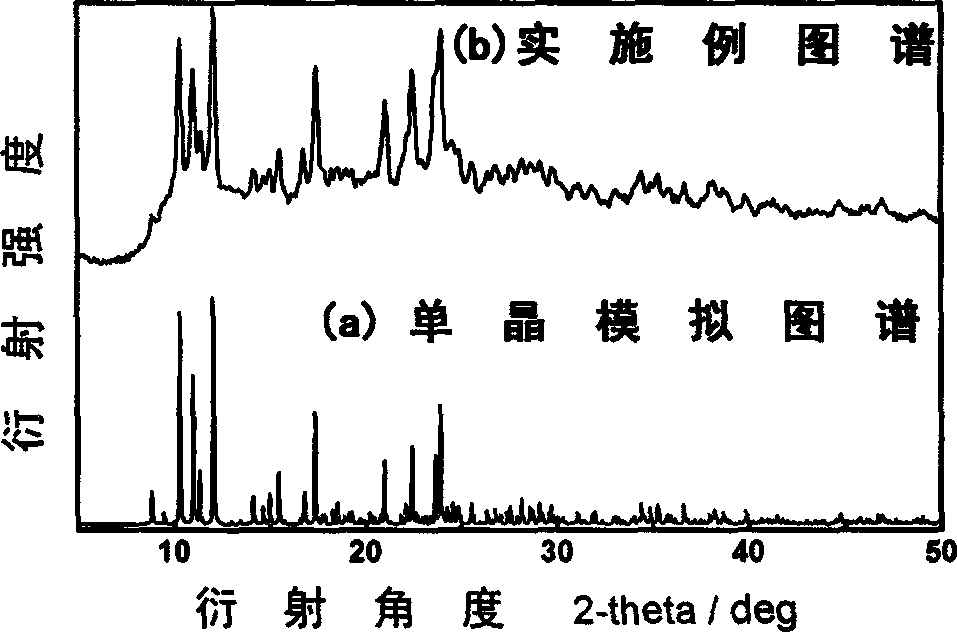CuIN2P-type red light emitting material with cuprous complexes
A technology of luminescent materials and complexes, applied in luminescent materials, copper organic compounds, electrical components, etc., can solve the problem that the luminous intensity cannot meet the application requirements, and achieve the effects of good phosphorescence emission performance, good solubility, and easy purification.
- Summary
- Abstract
- Description
- Claims
- Application Information
AI Technical Summary
Problems solved by technology
Method used
Image
Examples
Embodiment 1
[0034] Preparation of a large number of microcrystalline samples: Weigh 0.5 mmol of CuI and dissolve it in 10 mL of acetonitrile, weigh 0.5 mmol of tris(2,5-xylyl)phosphine ligand and dissolve it in 8 mL of dichloromethane, and mix the two Mix the solutions, and stir to make the coordination reaction fully occur to obtain a colorless solution A; then weigh 0.5mmol of 2-PBO ligand and dissolve it in 8mL of acetonitrile, then add this solution to the above solution A, and stir to make it fully A coordination reaction occurs, and finally the obtained yellow reaction solution is rotary evaporated to remove all solvents, and dried in vacuum to obtain a yellow crystal powder as the product, with a yield of 97% (calculated as Cu).
Embodiment 2
[0036] Synthesis of single crystal of phosphorescent cuprous complex CuI(2-PBO)(TXP-2,5): Weigh 0.1 mmol of CuI and dissolve it in 3 mL of acetonitrile, weigh 0.1 of tris(2,5-xylyl)phosphine Dissolve the ligand in 3mL of dichloromethane, mix the two solutions, and stir to make it fully undergo a coordination reaction to obtain a colorless solution A; then weigh 0.1mmol of 2-PBO ligand and dissolve it in 2mL of acetonitrile, Then add this solution into the above-mentioned solution A, and stir to make the coordination reaction fully occur, and finally filter the obtained yellow solution, cover the filtrate with n-hexane to promote the crystallization of the product, and after standing for several days, a large number of yellow blocky crystals are precipitated. A yellow bulk transparent crystal with a size of 0.38mm×0.30mm×0.23mm was selected for the X-ray single crystal diffraction structure test. The molecular structure of the compound is shown in the attached figure 1 , and i...
PUM
 Login to View More
Login to View More Abstract
Description
Claims
Application Information
 Login to View More
Login to View More - R&D
- Intellectual Property
- Life Sciences
- Materials
- Tech Scout
- Unparalleled Data Quality
- Higher Quality Content
- 60% Fewer Hallucinations
Browse by: Latest US Patents, China's latest patents, Technical Efficacy Thesaurus, Application Domain, Technology Topic, Popular Technical Reports.
© 2025 PatSnap. All rights reserved.Legal|Privacy policy|Modern Slavery Act Transparency Statement|Sitemap|About US| Contact US: help@patsnap.com



